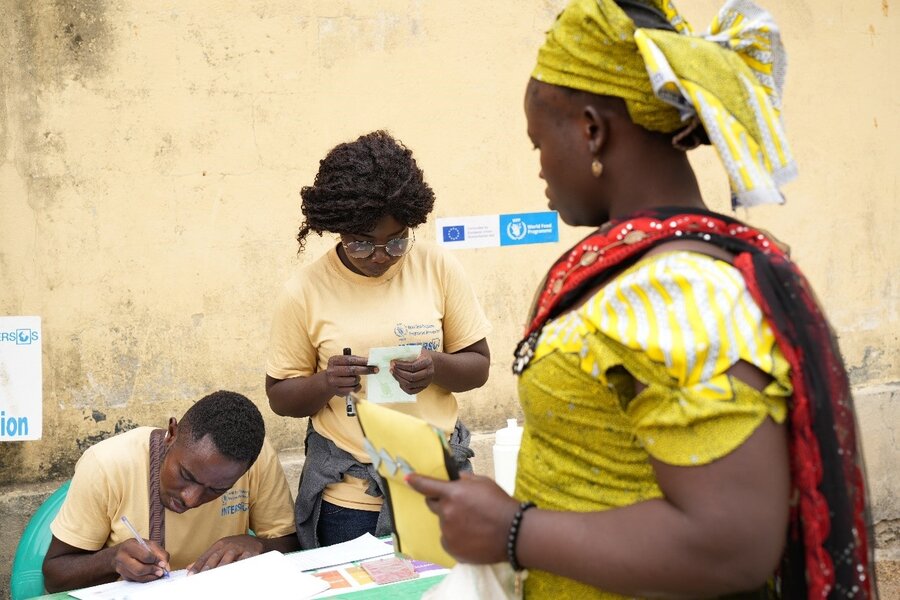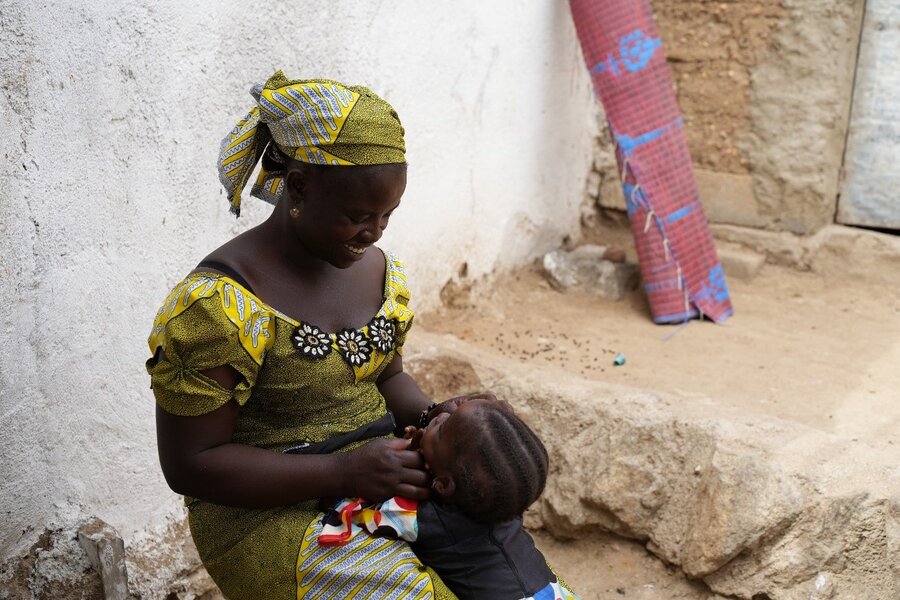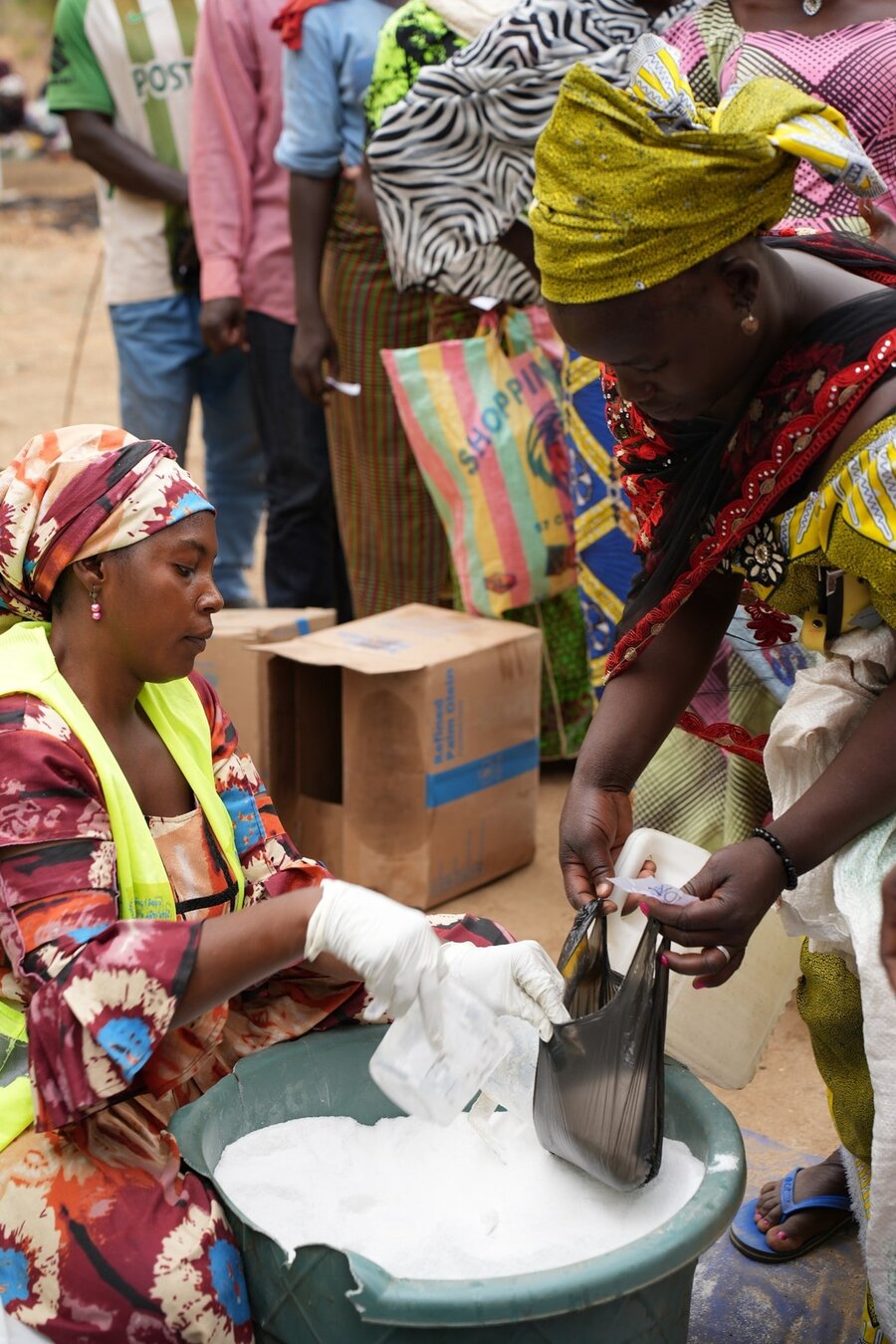In Cameroon’s conflict-hit regions, EU funding helps displaced families make ends meet
"We had to run at night in the bush to get to Mokolo," says Christina, a 33-year-old mother of six, who fled her home in the village of Tourou in the Far North Region of Cameroon last December to find refuge in the city of Mokolo, also located in the same region.

Having narrowly escaped an unexpected attack on their village by armed militias, Christina and her family were left with no means to provide for themselves. A family member in Mokolo gave them shelter.
"There isn’t enough room for everybody. But at least here we can sleep well. I feel safe and I no longer live in fear,” she says.
Over the past year, conflict and intercommunal clashes
have displaced 420,000 people in Cameroon’s Far North
region. The majority of them are women and children, who
now live with host families and rely mostly on
humanitarian assistance to survive.

Before they were forced to flee, Christina and her family
used to farm crops, raise livestock and manage a small
business.
“We used to trade with the neighboring villages. But with
the arrival of the armed groups, we had all given up,” she
says.
With support from the European Union (EU) and other
partners, the World Food Programme (WFP) provides
emergency food assistance through a special mechanism to
address food and nutrition needs when a sudden new crisis
comes on.
WFP used this mechanism to quickly respond to the needs of
crisis-affected people, providing food assistance to
240,000 internally displaced people in the Far North so
far in 2023.
By year’s end, we hope to reach a total of 300,000 people
in the region with emergency assistance and longer-term
resilience-building support. Significant donor
contributions, including from the EU, have allowed WFP to
address the severe impact of the escalating global food
crisis on displaced people like Christina — and supported
our efforts to empower local communities to build
resilience against hunger, and to strengthen local markets
amidst economic downturns.

Christina and her family counted among those receiving
rice, oil, salt and beans to meet their basic food and
nutrition needs for three months.
In addition to feeding displaced people, along with
refugees from the Central African Republic, WFP also
supports the Government’s school meals programme in many
schools — including the one where Christina’s children are
now enrolled.
“I want my children to be educated and become autonomous
in society. School meals keep them in school, so I have
nothing to worry about,” she says.
Christina hopes that one day she will be able to return to
her village and reconnect with her relatives.
“If the situation does not improve, I have no option but
to find something to do and live on here,” she says. “I
need anything that will make me self-reliant.



